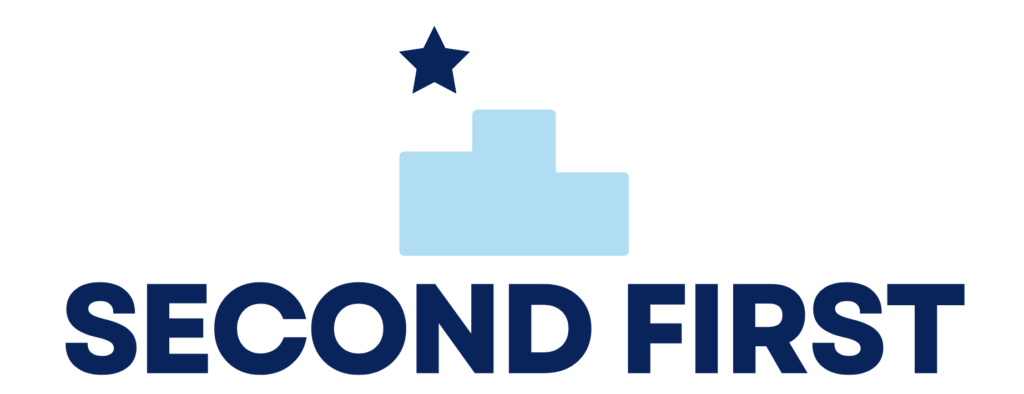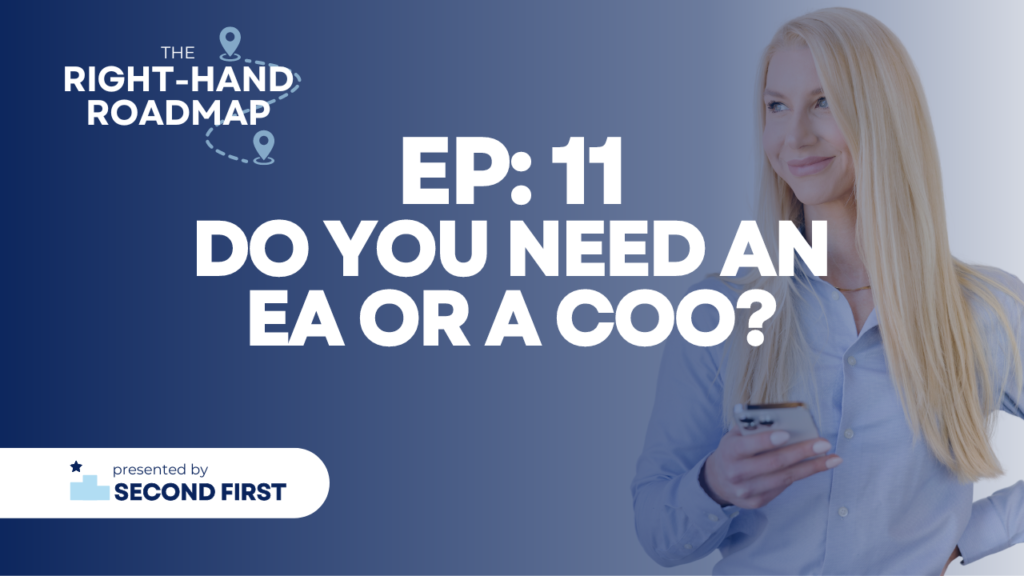Executive Assistant vs. Chief Operating Officer: When to Make the Leap.
In today's episode, we delve into a critical topic that often arises when scaling a small business: the distinction between hiring an Executive Assistant (EA) or a Chief Operating Officer (COO). This is a common conversation we have with founders navigating growth, especially as they pass the mid six to low seven figures in revenue.
An Executive Assistant can be a fantastic Second-In-Command, adept at handling day-to-day operations and ensuring tasks are executed with precision. They excel at anticipating an entrepreneur's needs and are invaluable in keeping the CEO on track and on time. However, a COO operates on a larger scale, focusing on the strategic vision and long-term planning. They craft action plans and hold others accountable to meet overarching goals.
Deciding when to transition from an EA to a COO depends on various factors – financial and strategic – that we cover in the episode. Conducting an “activity inventory,” as suggested by Dan Sullivan, can be helpful in identifying what the true business need is. If you find yourself overwhelmed by strategy or lack clarity on execution steps to achieve your vision, it might be time to bring on a COO.
You'll hear all about:
01:12: The multifaceted role of an Executive Assistant (EA) as a strategic partner and operational powerhouse.
02:16: The key differences between the scale and scope of operations for an EA versus a COO, emphasizing their complementary functions.
03:13: The differences in accountability—from an EA's individual performance to a COO's holistic responsibility for organizational success.
04:00: When is it time to transition from an EA to a COO? Including salary considerations and strategic needs.
05:09: How to implement an activity inventory to identify tasks for delegation, laying the groundwork for informing which position you need to fill.
05:26: Basic interview preparation tips, including researching the company and formulating intelligent questions.
06:44: The necessity of having questions for the interviewer and showcasing investment in the position.
07:06: Anticipating and preparing for questions about accountability, teamwork, and handling disagreements.
07:49: Addressing choice-based questions, aligning personal values with the company's ethos, and culture preservation.
08:24: Advising on preparing a loose plan for the first 30, 60, 90 days in the executive role.
09:21: Stressing the importance of observing, understanding, and building buy-in before implementing changes.
Rate, review & follow on Apple Podcasts
Click Here to Listen!
Or Watch on Youtube
If you haven't already done so, follow the podcast to make sure you never miss a value-packed episode.
Links mentioned in the episode:
Results are not guaranteed. Please see our Earnings Disclaimer for more details.



